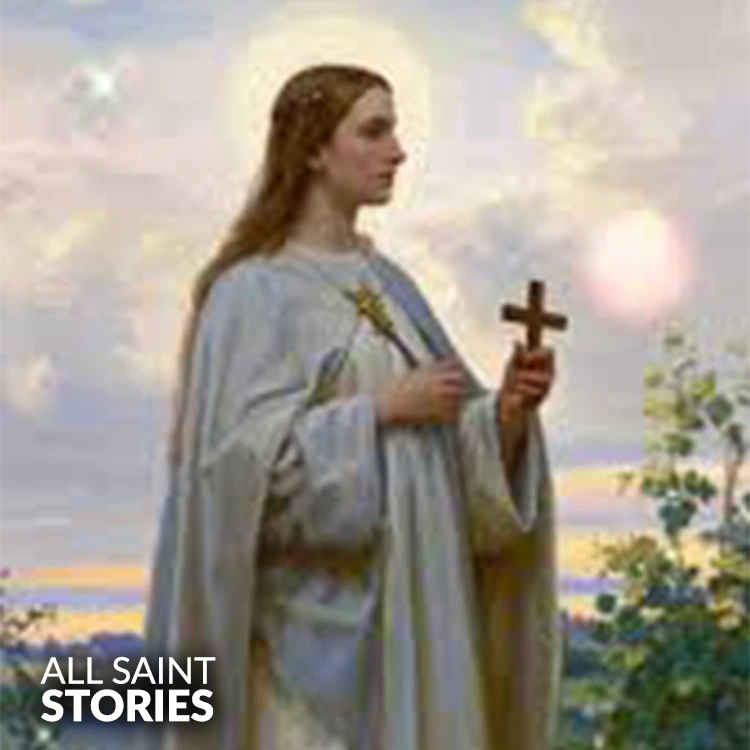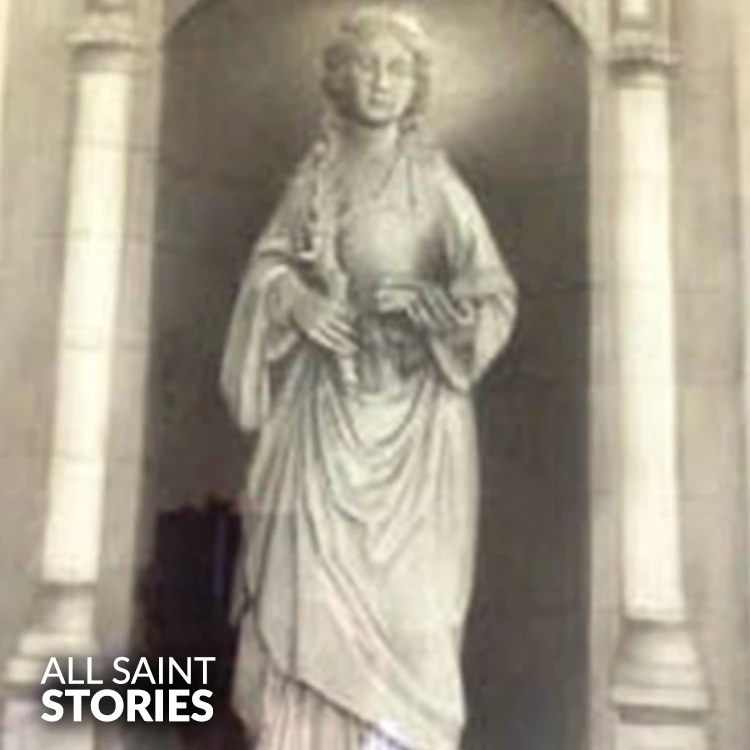Prayer Information Not Available
ST. MACRINA
ST. MACRINA

St. Macrina the Younger was a 4th-century Christian ascetic and the sister of the Cappadocian Fathers. She was instrumental in shaping early Christian monastic life and had a profound influence on her brothers, especially St. Basil the Great and St. Gregory of Nyssa.
St. Macrina the Younger, born in 327 in Cappadocia (modern-day Turkey), emerged as a foundational figure in early Christian asceticism and theology. She was born into a devout Christian family, the daughter of St. Basil the Elder and St. Emmelia, and was the eldest sister of some of the most prominent theological minds of the early Church, including St. Basil the Great, St. Gregory of Nyssa, and St. Peter of Sebaste. At the age of twelve, Macrina was betrothed, but when her fiancé died unexpectedly, she chose not to marry again and instead devoted her life entirely to God. Rejecting further proposals, she remained with her mother, and together they founded a monastic community on their family estate.
This early monastic community, which operated under ascetic principles and communal living, played a significant role in shaping the future of Christian monasticism. Macrina’s leadership and spiritual insight created a model for both men’s and women’s monastic communities. She became known for her wisdom, deep theological knowledge, and commitment to simplicity, prayer, and service.
Macrina's influence extended far beyond her own community. Her brother, St. Basil the Great, was significantly shaped by her example and guidance. Through her inspiration, he developed the monastic rule that would later influence Eastern Orthodox monasticism for centuries. Another of her brothers, St. Gregory of Nyssa, who became a significant theologian and bishop, deeply admired Macrina’s intellectual and spiritual acumen. He referred to her as “the Teacher” and authored On the Soul and the Resurrection, a philosophical and theological dialogue based on conversations he had with her shortly before her death.
During her final illness in 379, Gregory visited her and engaged in profound discussions on the soul, resurrection, and divine truth. Macrina displayed remarkable composure and insight, using her suffering as a spiritual offering. Her words and demeanor deeply moved Gregory, who later recorded the dialogue as a testament to her sanctity and intellect. These conversations reveal Macrina’s depth of understanding in theology, especially in regard to the nature of the soul and the Christian understanding of the afterlife.
Although she never held formal ecclesiastical authority, Macrina's impact on her brothers, who were among the most influential Church Fathers, cements her role in Church history. Her legacy lives on through their writings, her teachings, and the spiritual movements she helped foster. She is venerated in both the Eastern Orthodox and Roman Catholic traditions, and her feast day is celebrated on July 19.
Video Not Found
The information on this website is compiled from various trusted sources. While we aim for accuracy, some details may be incomplete or contain discrepancies.
If you notice any errors or have additional information about this saint, please use the form on the left to share your suggestions. Your input helps us improve and maintain reliable content for everyone.
All submissions are reviewed carefully, and your personal details will remain confidential. Thank you for contributing to the accuracy and value of this resource.
Credits & Acknowledgments
- Anudina Visudhar (Malayalam) – Life of Saints for Everyday
by Msgr. Thomas Moothedan, M.A., D.D. - Saint Companions for Each Day
by A. J. M. Mausolfe & J. K. Mausolfe - US Catholic (Faith in Real Life) – Informational articles
- Wikipedia – General reference content and images
- Anastpaul.com – Saint images and reflections
- Pravachaka Sabdam (Malayalam) – Saint-related content and insights
We sincerely thank these authors and platforms for their valuable contributions. If we have unintentionally missed any attribution, please notify us, and we will make the correction promptly.
If you have any suggestion about ST. MACRINA
Your suggestion will help improve the information about this saint. Your details will not be disclosed anywhere.
© 2026 Copyright @ www.allsaintstories.com



 English
English
 Italian
Italian
 French
French
 Spanish
Spanish
 Malayalam
Malayalam
 Russian
Russian
 Korean
Korean
 Sinhala
Sinhala
 Japanese
Japanese
 Arabic
Arabic
 Portuguese
Portuguese
 Bantu
Bantu
 Greek
Greek
 German
German
 Dutch
Dutch
 Filipino
Filipino